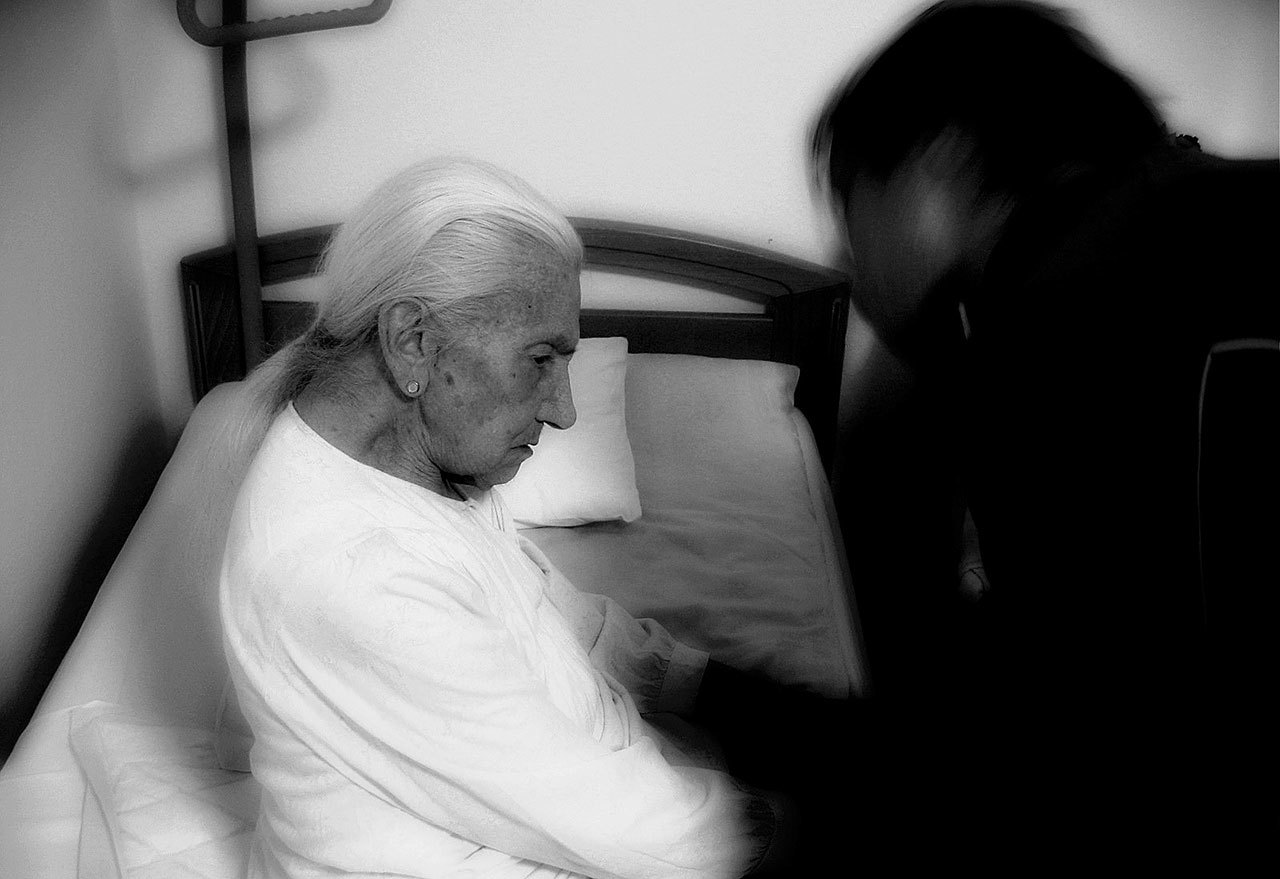According to the National Aging Council, one out of 10 Americans over age 60 will suffer some form of elder abuse. San Juan County, with its large retirement community, is not immune to those statistics.
“We usually have about half a dozen referrals a year to Adult Protective Services, from all the islands,” said Wendy Stephens, senior services manager at the county’s Health and Community Services. San Juan County Undersheriff Brent Johnson cautioned that statistics on elder abuse can be tricky since the crime tends to be under reported.
Stephens agreed, explaining that the perpetrator is often a friend or family member. As a result, the elder person may be afraid to turn the person in or worried no one else will take care of them.
Types of abuse
Most of the cases Stephens has handled have to do with neglect, occasional exploitation or physical or verbal abuse but those cases have been rare. San Juan County EMS Director Lainey Volk agrees with that assessment and said they have responded to many cases of elder neglect, but not cases of battery.
Johnson has mostly worked with financial cases, where family members and caregivers embezzle funds from eldery persons.
The number one way to avoid fraud is making sure there are two people overseeing the person’s finances, according to Johnson. It is more difficult to defraud someone if two people are watching the person’s accounting, he added.
The signs
SAFE San Juans Executive Director Kim Bryan stated that she has dealt with multiple cases over the years, most of them from grown children or partners. There are of course different types of abuse, including financial exploitation, neglect, and verbal, physical and sexual abuse. Red flags to indicate abuse, according to Bryan, include:
• Emotional abuse; intimidation and inappropriate control.
• Health care abuse; unusual weight loss, under or over-medication or unsanitary living conditions.
• Neglect; ignoring the elderly person’s needs.
• Sexual abuse; anything appearing inappropriate in behavior in regards to physical contact etc, or unusual tenderness or pain indicating possible injuries in private areas.
• Financial exploitation; money missing from personal belongings and financial institutions, unexplainable financial activity; forging the elder’s signature, investment fraud, suspicious changes in wills, power of attorney, titles and policies.
Stephens said the first thing to ask is, is the person safe? For example, are they alone and have dementia? Are they appropriately dressed for the weather, or are they wearing a light top, and no coat in the middle of winter? Are they clean or disheveled or have an odor?
“Ask yourself what worries you; does this person present in a good way, or is something off?” Stephens said.
Reporting
If an elder does need help, there are several things that can be done.
“Become an engaged bystander,” Bryan said, “don’t turn your head and say it isn’t my business.”
The sheriff’s department provides wellness checks, meaning officers will check in on the person, even when no crime has occurred. EMS will also performs home visits; looking for fall prevention and giving medical conciliation. Advocates at SAFE San Juan are also available to talk with concerned citizens as well as victims.
To report an incident, call the Adult Protective Services hotline at 866-221-4909.
“Don’t ever avoid calling APS because you think nothing will happen,” Stephens said, explaining that APS works off a matrix system, so while a situation may not originally meet the criteria to send out an agent, if six or more people call, an agent may visit anyway because of the number of people concerned.
Prevention
Knowing when and how to intervene can be tricky.
“You don’t want to step on their toes; they are adults and they have lived a long life,” Johnson said. But the community at large can be one of the biggest preventatives of abuse.
“As a community, we need to be sure we are providing the safety net of friends who the elderly can trust. Remember, isolation makes abuse much easier to hide,” Bryan said.
Elders who are isolated due to any number of issues, such as illness, lack of physical mobility or lack of transportation or lessening mental abilities, according to Bryan, are more vulnerable to abuse.
“Keep them in contact with outsiders and the world,” Stephens said, adding that the San Juan Island Family Resource’s Island Neighbors on San Juan or Hearts and Hands, Orcas Senior Center and Lahari on Orcas can help with transportation and even companionship.
“These are people who are proud and stoic; they are not going to say they need company, but they might say they need transportation or help with house care,” said Ashley Strutz, who has been matching volunteers with recipients for the newly begun volunteer program at the resource center. With some 30 percent of San Juan County’s population being over 65, according to the U.S. Census Bureau, senior services is a big need.
“We definitely could use more volunteers,” Strutz said, explaining that people can volunteer as often or as little as they like, can do transportation with non-medical errands, volunteer with one recipient and focus on making a connection with that person, or float around and work with many recipients.
It is a win-win situation. The volunteer gets the satisfaction that they are doing something good for the community, while the elder gets the help they need, as well as companionship and a support network.
“It’s more eyes and ears out there to make sure people are doing OK,” said Strutz.
Report abuse to:
• County Sheriff’: 378- 4151
• SAFE San Juans:
San Juan: 378-2345
Orcas: 376-1234
Lopez: 468-4567
• APS: 866-221-4909




